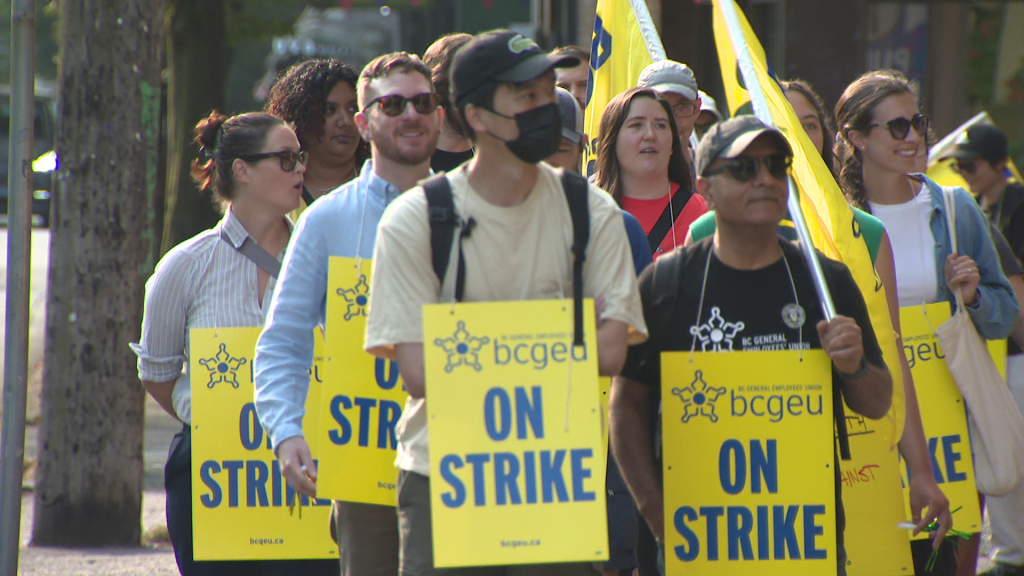The BC General Employees’ Union (BCGEU) strike has entered its third week, prompting an expansion of job actions that now affect vital personnel within British Columbia’s mining sector. Beginning on Tuesday, government employees responsible for supporting the province’s mineral and mining operations will join the strike, significantly impacting the regulatory framework overseeing this critical industry.
The union announced that engineers, geoscientists, agrologists, and foresters responsible for mine permitting, safety enforcement, and environmental compliance will be off the job. This development was highlighted by Melissa Moroz, a representative of the Professional Employees Association, during a media event in Victoria. She emphasized the critical nature of these roles in maintaining industry standards.
Picket lines will include staff from the Mineral Development and Mineral Titles offices located in Vancouver, as well as workers at the Southeast Mines Office in Cranbrook. The BCGEU President, Paul Finch, pointed out the implications for ongoing projects, including five that were recently identified by Prime Minister Mark Carney for initial consideration, two of which are located in British Columbia.
“Environmental regulation is necessary for these projects,” Finch stated. He underscored the essential role of civil service workers in the province’s economic framework, asserting, “You can’t fast-track mines and fast-track permitting without the people that do that work.” Finch reiterated the union’s desire for a resolution, expressing concerns that the strike will lead to delays in the permitting process for mining operations.
In addition to the strike, the BCGEU has escalated its actions by extending overtime bans to correctional and sheriff services, alongside existing bans at Liquor Distribution Branch warehouses. The union is advocating for a wage increase of 8.25 percent over two years to address rising cost-of-living challenges, alongside other demands.
B.C. Finance Minister Brenda Bailey recently announced that the provincial forecasted deficit has reached a record high of nearly $11.6 billion for the first quarter of the 2025-2026 fiscal year. This significant deficit is attributed to the removal of the carbon tax and ongoing global trade uncertainties. Finch noted that the announcement regarding the deficit does not alter the union’s negotiating stance.
The BCGEU has called for the government to return to the bargaining table, emphasizing the importance of a collective agreement to prevent further disruptions in the province’s public services and economic activities. The impact of the strike continues to resonate throughout British Columbia, highlighting the delicate balance between workers’ rights and the economic needs of the province.
